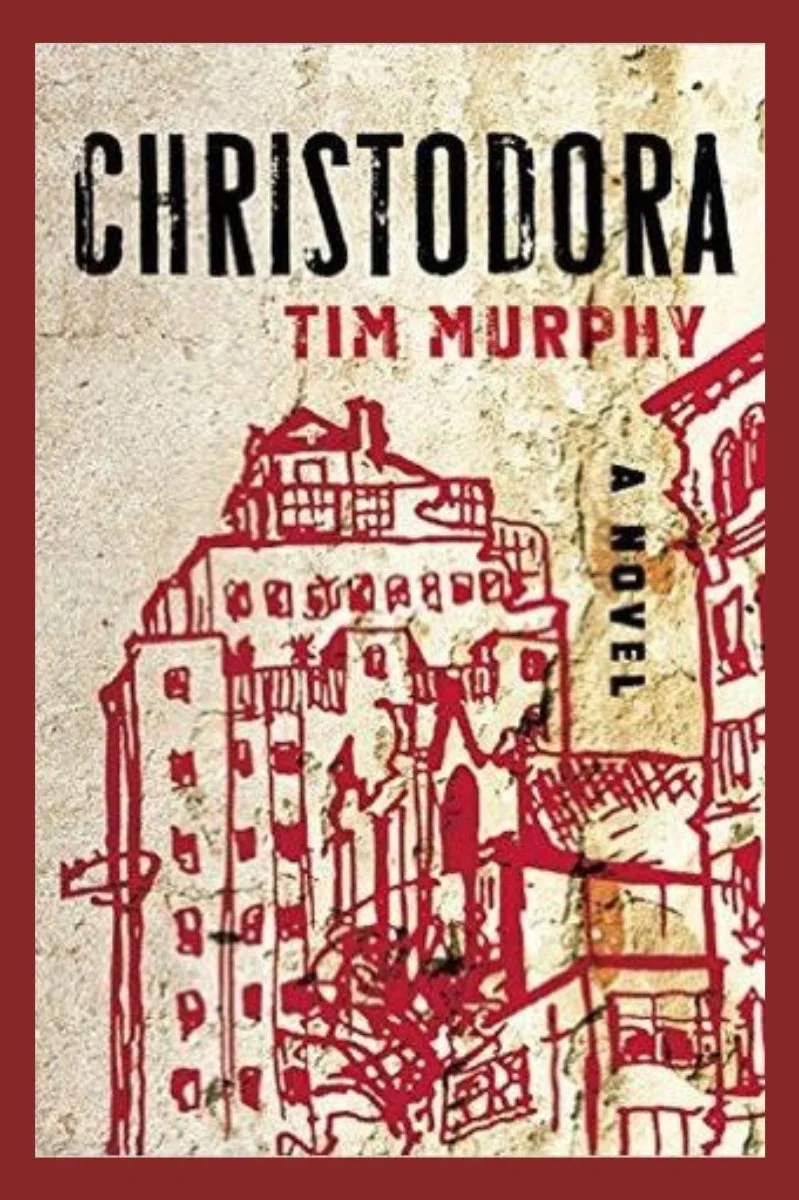Christodora – Tim Murphy
100-Word (or Less) Synopsis: The lives of the residents of the Christodora become inextricably intertwined by circumstances both within their control and outside of it.
Expectation: An engrossing, underappreciated modern epic.
Reality: Bloated, meandering and populated with people doing terrible things, I wanted to like this more than I did.
Recommended For: Fans of historical fiction set amongst the early days of the AIDS crisis.
Why I Read It: It had been on my radar for years and came highly recommended from a few folks on #Bookstagram.
My Take:
Three years to the date this book first pinged my radar, I finally started Tim Murphy’s wannabe epic, “Christodora,” and I wish I could say it was fully worth the wait.
Murphy weaves an intricate story about one of the worst time periods in recent history — the 1980s AIDS crisis — and its wide-ranging repercussions for people with a connection to the Christodora, one of the first gentrified buildings in New York City’s East Village.
It’s full of life, death, love, heartbreak and pop culture references to help anchor you in what era of the roughly 40 years we follow our core characters: Ava, a public health official; her daughter Milly and her husband Jared; their former paramour and lifelong friend, Drew; their adopted son, Mateo; his birth mother, Issy; and Christodora neighbor, Hector.
At various times it felt like a distant relative to James Baldwin’s “Another Country” and close cousin to its contemporaries in subject matter and pain, Rebecca Makkai’s “The Great Believers” and Hanya Yanagihara’s “A Little Life.” Where I loath comparing books to one another, I’d recommend each of the aforementioned novels individually before recommending “Christodora.”
Not because it’s a bad book — at times I found it raw with in-your-face writing that was a bit jarring — it simply tried to do too much, which at times felt like a meandering parade of unlikable characters doing terrible things to themselves and others. And, if you’re going to put the reader through that, you need to give them someone to root for.
Arguably Milly is the main character, but I found her to be an emotional leach. Murphy writes her with an interesting arc that shows how bright-eyed enthusiasm can be a detriment later in life when difficult decisions require more practical versus emotional responses. I alternately felt sorry for her and hated her.
Then there’s Mateo who, outside of his origin story, felt like a stock character of privilege squandered by addiction. His parents treated him like glass, and he acted out, ultimately ending up in jail and spending decades trying to atone for past sins. I enjoyed the last third of his story significantly more than anything that preceded it.
I felt like Jared, Issy and Drew were used as props, trotted out to personify vilification, sympathy and atonement. None of them were given enough meaty material — outside of Drew — to truly make you care about them or to justify standalone POVs.
That leaves us with Hector and Ava, the two most interesting characters in “Christodora,” and since they were colleagues at one point, could’ve had the entire novel center around them. It would’ve been a shorter novel, but I don’t think that’s necessarily a bad thing.
Yet, they also pose challenges for Murphy. Ava, a white, cis-gendered woman, teetered into saviorism territory, and Hector, who goes on a path of self-destruction after the death of a lover and disappointment at the response to AIDS, is borderline stereotypical. More focus on these two people, and their individual responses to the same situation, would’ve made for a tighter, more compelling story that felt unique to an already bloated subgenre of gay literature.
I’m writing this review a week after finishing the book, and I can’t say that it stuck with me as much as I expected it would. In recapping my thoughts I’m struggling to come up with more positives than negatives, so I’ve amended my initial review of four stars to three stars.
As an audiobook, it’s a bit difficult to follow for the first 15 percent given the time period jumps and multiple characters. I was surprised to learn later it was narrated by a full cast (Cassandra Campbell, Christa Lewis, Suzanne Elise Freeman, Prentice Onayemi, Thom Rivera, Kyla Garcia and Will Damron), because it didn’t seem like there was much differentiation between the characters, outside of Ava and Hector, which had some overexaggerated accents. I do remember thinking the narration was engaging, but also not incredibly memorable in hindsight.
This type of novel is for a specific type of reader, one that I usually am, but I didn’t connect with the work in the way I had hoped — especially for the time commitment required.
Rating (story): 3/5 stars
Rating (narration): 3/5 stars
Formats: Audiobook (library loan)
Dates read: July 20 – August 3, 2022
Multi-tasking: Good to go, at least after the first third when all the characters have been introduced, and you can more easily follow along with the time period shifts.





